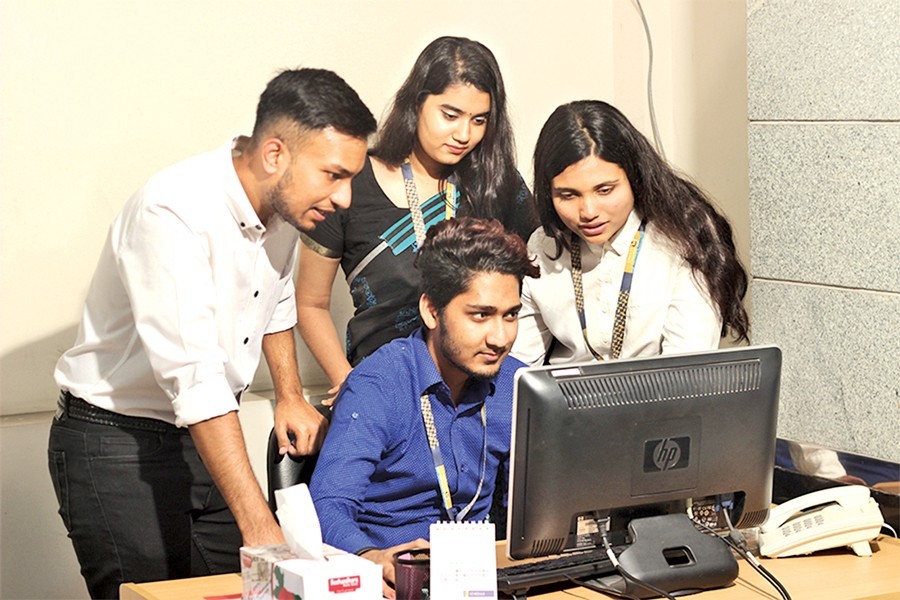There are now 104 private universities in the country as against 42 in the public sector. As many as 105 private universities have received official recognition in Bangladesh over the past 27 years since 1992. Among these, almost half have been approved during the past ten years. In fact, it would have been commendable if the rise in quantity was accompanied by commensurate improvement in educational quality and operational standards. But regrettably, the situation is far from satisfactory.
The rankings of private universities remain much below par even in the regional and Asian context. The latest rankings released by the Times Higher Education (UK) do not include a single Bangladeshi university among the top 400 Asian universities.
There are many allegations against a majority of private universities, including violation of rules, non-submission of annual audit-reports, low quality of education and charging of fees at will. As many as 34 of these universities have failed to shift to permanent campuses as required by law despite repeated reminders. Allegations are also rife about sub-standard education and inadequate facilities.
When the Private University Act was first promulgated in 1992, there was a provision for framing statutes by the respective institutions. But till now, not a single private university has done that, allegedly due to non-cooperation from the government. As a result, although public universities have statutes that provide guidelines on their operations, no such guideline is available for the private universities. Absence of statutes results in operational variations among universities and adversely affects their transparency, accountability and uniformity.
The revised Private University Act of 2010 clearly mentioned that any surplus money generated by the universities must be reinvested there. But there are allegations that sponsors or so-called founders of some private universities tend to believe that they own these as 'businesses.' The 2010 Act attempted to change that outlook of university sponsors.
Under the 2010 Act, the private universities are obliged to provide tuition waiver for students coming from freedom fighters' families, poor students, as well as pupils hailing from remote areas and belonging to disadvantaged groups. A mechanism should have been developed for ensuring proper implementation of this provision as well as for enhancing transparency and accountability in the area. Research facility is another aspect where the private universities, with some honourable exceptions, currently lag behind. Absence of flexibility with regard to course options at the graduate and undergraduate levels has also been a nagging issue for many. But there has not been much headway in standardising the curricula as well as in establishing appropriate accreditation system.
Among the private universities, more than half are based in Dhaka. As many as 20 universities do not have vice-chancellors at the moment and 72 are without pro-vice-chancellors. Half of these are run without treasurers. Around 32 per cent among 16 thousand teachers are part-timers. Among the professors and associate professors, two-thirds work part-time and they mostly come from public universities. The universities also lack unified salary structure and recruitment rules. Financial allocations for research are quite inadequate in most of the universities.
As reported in the print media recently, around 80 per cent of the running private universities routinely violate relevant rules and regulations. According to an evaluation of University Grants Commission (UGC), only 20 private universities are being run satisfactorily. And only a few universities have completed the process of fulfilling all conditions in accordance with law.
What is most noticeable is that the trustee boards are in some cases dominated by family members and relatives of the sponsors, who wield enormous influence in the running of these institutions. These trustees are very influential, and many of them consider establishment of a university as a status symbol. Problems are generated when they try to interfere in the daily workings of universities. A UGC report claimed last year that meritorious teachers hesitate to build up career in these universities. All these have resulted in compromising the quality of education.
According to concerned authorities, total income of private universities was over TK 30 billion in 2017. Their expenditure was also shown to be almost same during the year. But most did not submit audit reports in accordance with law. Alarmingly, at least seven universities have never submitted any audit report. And only 26 private universities submitted up-to-date audit reports.
The role of Vice Chancellors is limited in many institutions. Their main task often appears to be implementation of decisions taken by the board of trustees, whereas the faculty members and academics should have been the ones to take such decisions. Meetings of syndicates and academic councils are also not held regularly in some instances. All this indicates lack of transparency and accountability in running private universities in line with relevant laws, rules and regulations. In fact, adherence to standard norms, rules, procedures and practices holds the key to flourishing of private universities in the country.
Dr. Helal Uddin Ahmed is a retired Additional Secretary and former Editor of Bangladesh Quarterly.


